GLOBAL EXCLUSIVE
South African women and children detained in Syrian displacement camps plead ‘bring us home’
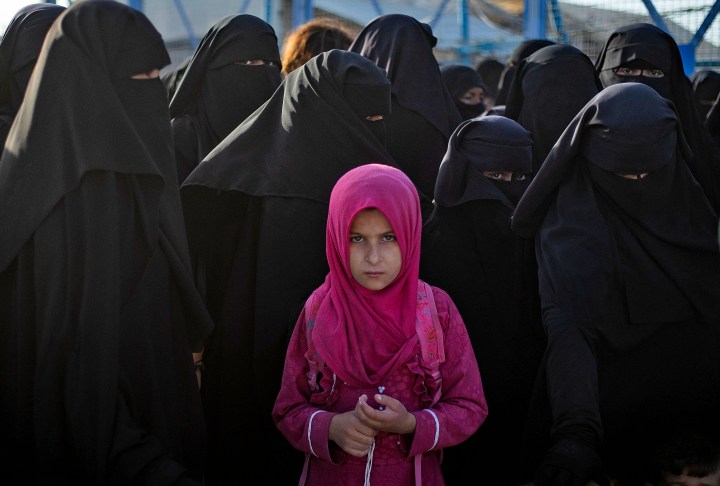
DM168 has established there are at least four South African women and 13 children detained in appalling conditions in two displacement camps in northeast Syria. They are desperate to return home – and accuse the South African government of dragging its feet.
Department of International Relations and Cooperation (Dirco) spokesperson Clayson Monyela confirmed to DM168 last week that the South African government is aware of multiple women and children asking to be repatriated from Syria.
“The government is currently seized with this matter,” said Monyela. He could not comment further due to various sensitivities around the matter pertaining to politics and security.
DM168 has learnt that the South Africans are being held in the Al-Hol and Roj camps in northeast Syria, where almost 60,000 people have been detained since the collapse of the Islamic State in 2019.
Conditions in these camps have attracted international condemnation, with the most recent UN report on the situation stating that the children detained there “are deprived of their most basic rights as children”.
The report, released last month, also states: “There are reasonable grounds to believe that the conditions in both camps may amount to cruel or inhuman treatment”.
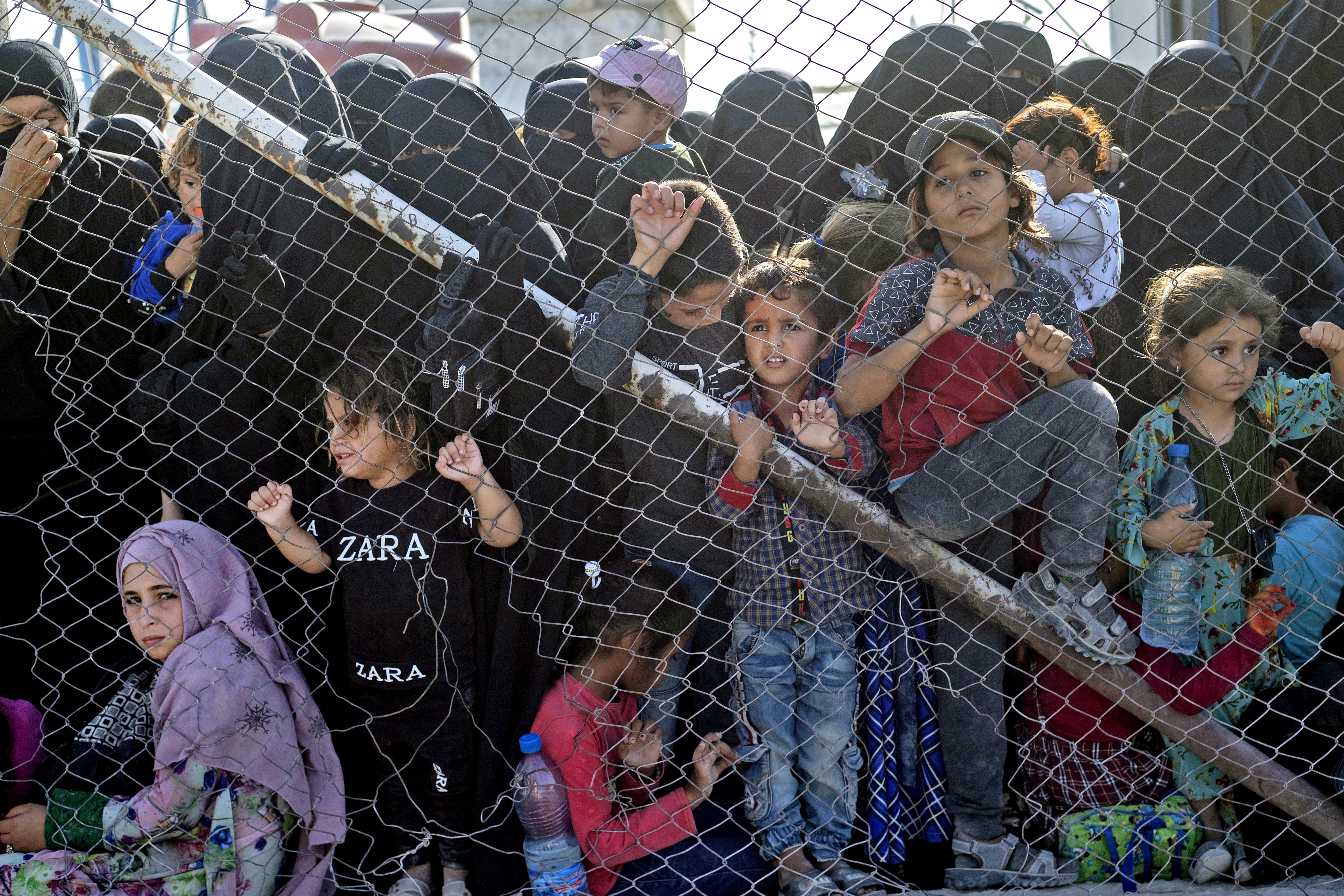
Children at the Kurdish-run Al-Hol camp in the northeastern Al-Hasakah Governorate during a security operation by the Kurdish Asayish security forces and the special forces of the Syrian Democratic Forces, 26 August 2022. (Photo: DELIL SOULEIMAN / AFP)
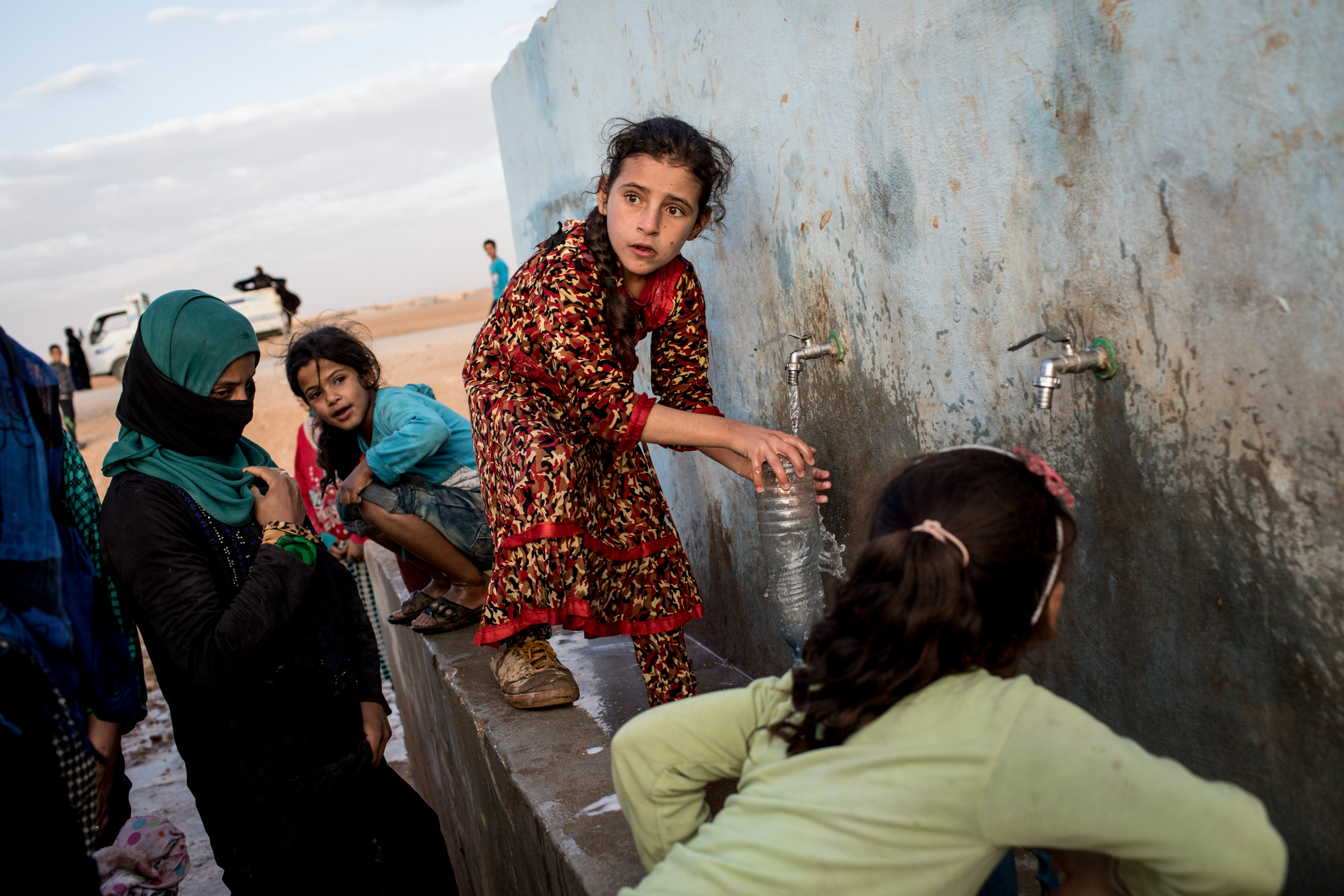
A young girl fills a bottle at a water pump station at a camp for internally displaced people on 29 October 2017 in Ain Issa, Syria. (Photo: Chris McGrath / Getty Images)
South African women plead for assistance from the government
This week, South African women within the Roj camp were able to convey messages to DM168 via lawyers from Reprieve, an international human rights NGO headquartered in London. The women cannot be named for security reasons, but DM168 understands that the majority originally hail from the Gauteng area.
“We are just women and children. If you ask the authorities here, they don’t have any bad reports on any of the South African women here. We are basically quiet people. We spend our time in the tents and we don’t cause any problems,” one said.
They described a life of chilling boredom for the children in captivity, in particular, with the kids not attending school.
“They think the stones on the street are their toys,” one woman said.
The women said they had been given assurances in 2020 that their repatriation was imminent – but nothing happened.
“They told us the day before that we were being repatriated … We were all waiting at the top [of the camp] at 8am with our bags and kids. The kids were all excited. They were finally going home. We stood for two hours and then nobody said anything and we couldn’t get any news from anybody. [At around] 2pm, we were told that negotiations failed,” one said.
“It’s heartbreaking when they tell you that you are leaving, and then you don’t get to leave.”
The women claim that in several years living in the camps, not one representative of the South African government has spoken to them.
“It’s extremely depressing,” another said.
“Up to that point, we had hope. We were getting out. When that happens to you, you become extremely depressed.”
South Africans detained in ‘catastrophic’ conditions
The South African women and children are among an estimated 11,000 foreigners detained between the Al-Hol and Roj camps, the majority of which are children.
“Reprieve has visited Camp Roj many times and has met with South African women and children,” Reprieve’s head of the Syria and Iraq detention project, Katherine Cornett, told DM168 this week.
Cornett described the South Africans as being “imprisoned in conditions that are widely acknowledged to be catastrophic”, without adequate food, water or medical care. They live in tents which are freezing cold in winter and dangerously hot in summer.
“A child reportedly dies roughly every three days in these camps, including from preventable illnesses and tent fires,” Cornett said.
“We are aware of South African citizens in detention who are gravely ill, and we are deeply concerned about their wellbeing if they are not repatriated soon.”
A 2021 Save the Children report on the Al-Hol and Roj camps found that there were “high levels of tension and violence” in the camps, with children facing “early and forced marriage, domestic violence and other forms of mental or psychological abuse”.
The children of the camps are described as living in a state of trauma as result of bombardments, the loss of family members, being denied access to basic services including education, and having their freedom of movement drastically curtailed. Most of the South African children do not know a world beyond the Roj camp, which is just 0.07 square kilometres.
In the Al-Hol camp, many adolescent girls are not even allowed to leave their tents because of their families’ justified fear of gender-based violence. In June 2021 alone, eight women were murdered. For boys, there is a different threat: when they turn 12, they risk being sent to external adult prisons because they are viewed as a security threat.
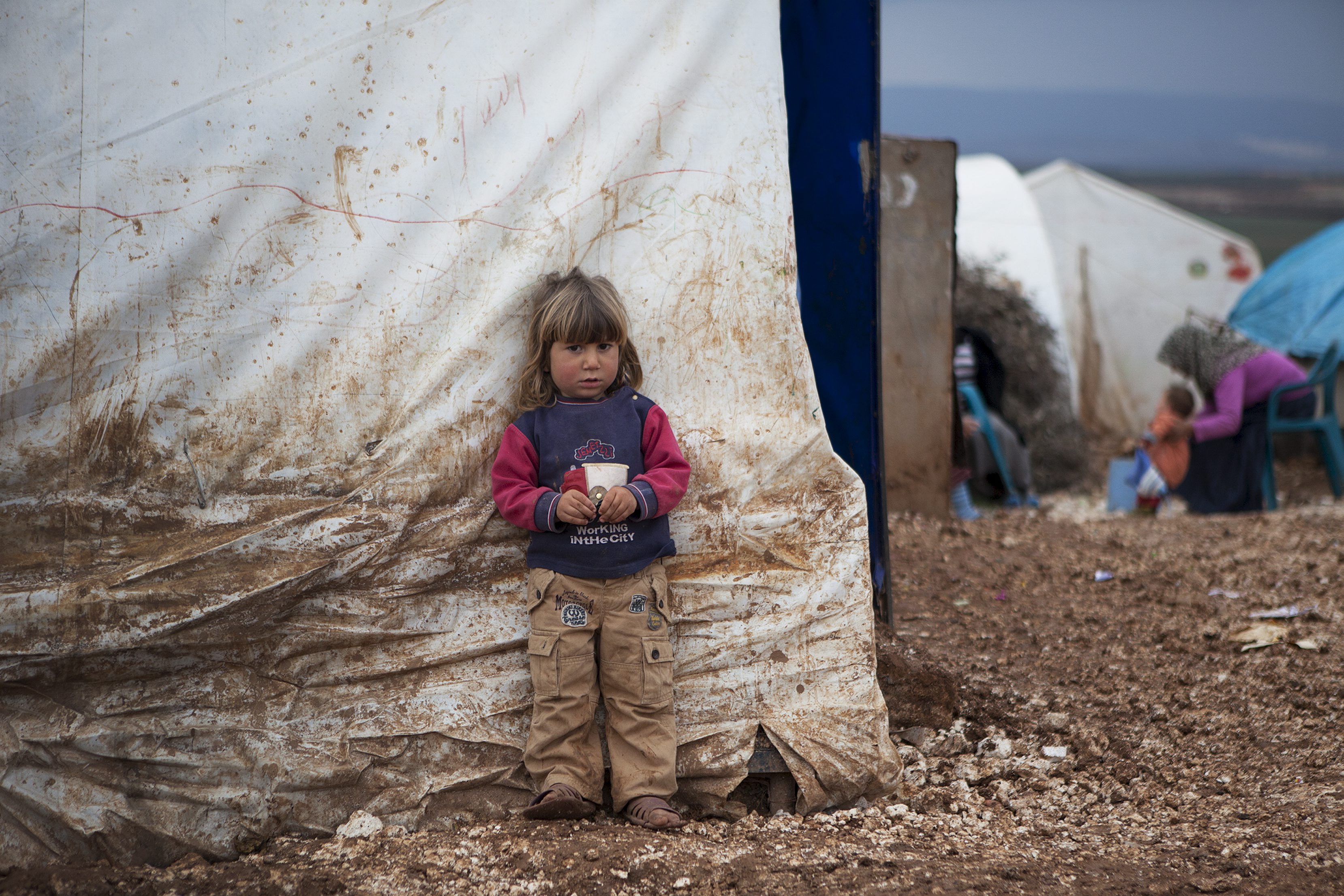
A child at the Atmeh refugee camp on 24 February 2014 in Atmeh, Syria. (Photo: Gallo Images / Nicolene Olckers)
Visit Daily Maverick’s home page for more news, analysis and investigations
The Isis connection
Governments globally have wrestled with the issue of what to do with citizens who left their countries to fight for Isis, or live in the Islamic caliphate, who now wish to return home. When Daily Maverick first investigated this issue in 2020, it appeared that the South African government had not yet resolved a policy in this regard.
In a talk at the University of Cape Town in May 2022, Dirco Minister Naledi Pandor told the audience that the government was not assisting any Isis fighters to return, but was prepared to help South African women and children left behind in Syria.
The circumstances under which the South Africans in the Al-Hol and Roj camps came to be in Syria are not clear – though Reprieve explained to DM168 that the fact that they are being imprisoned there is based on “a presumed affiliation with Isis”.
Reprieve’s investigations have shown, however, that many of the women in detention in northeast Syria are victims of trafficking.
“Isis trafficked women and children into its territory to fulfil its strategic goal of state-building, and subjected them to sexual exploitation and other abuses,” Cornett told DM168.
“There is therefore good reason to believe that some of the South African detainees are, in fact, victims of human trafficking – while the majority of South Africans abandoned in these life-threatening conditions are children.”
Allowing the Syrian detainees to return to their home countries has proved a political hot potato elsewhere. In recent times, however, there have been indications that the tide is turning. As of July 2022, about 1,400 children and 370 women have been repatriated to 34 home countries.
In mid-October, Britain repatriated a mother and her child in what was the first case of an adult permitted to return to the UK from Syrian detention. The Australian government, meanwhile, is preparing to repatriate about 60 women and children – but authorities have warned that some adults may face arrest on return.
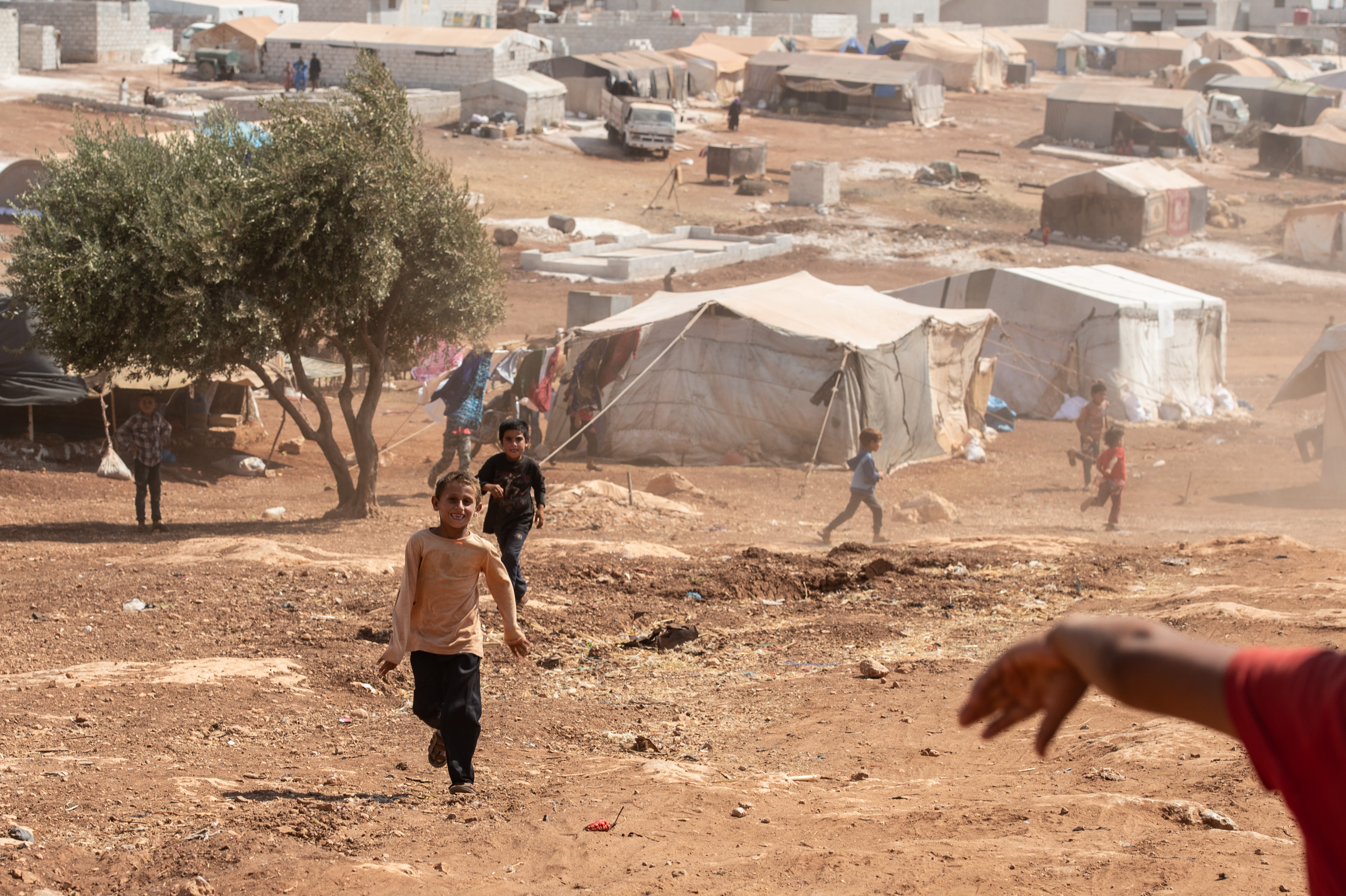
Displaced Syrian children run through the Atmeh camp, which hosts nearly 1 million displaced Syrians, near the Syrian-Turkish border in Idlib Governorate, 17 September 2019, in Atmeh, Syria. (Photo: Burak Kara / Getty Images)
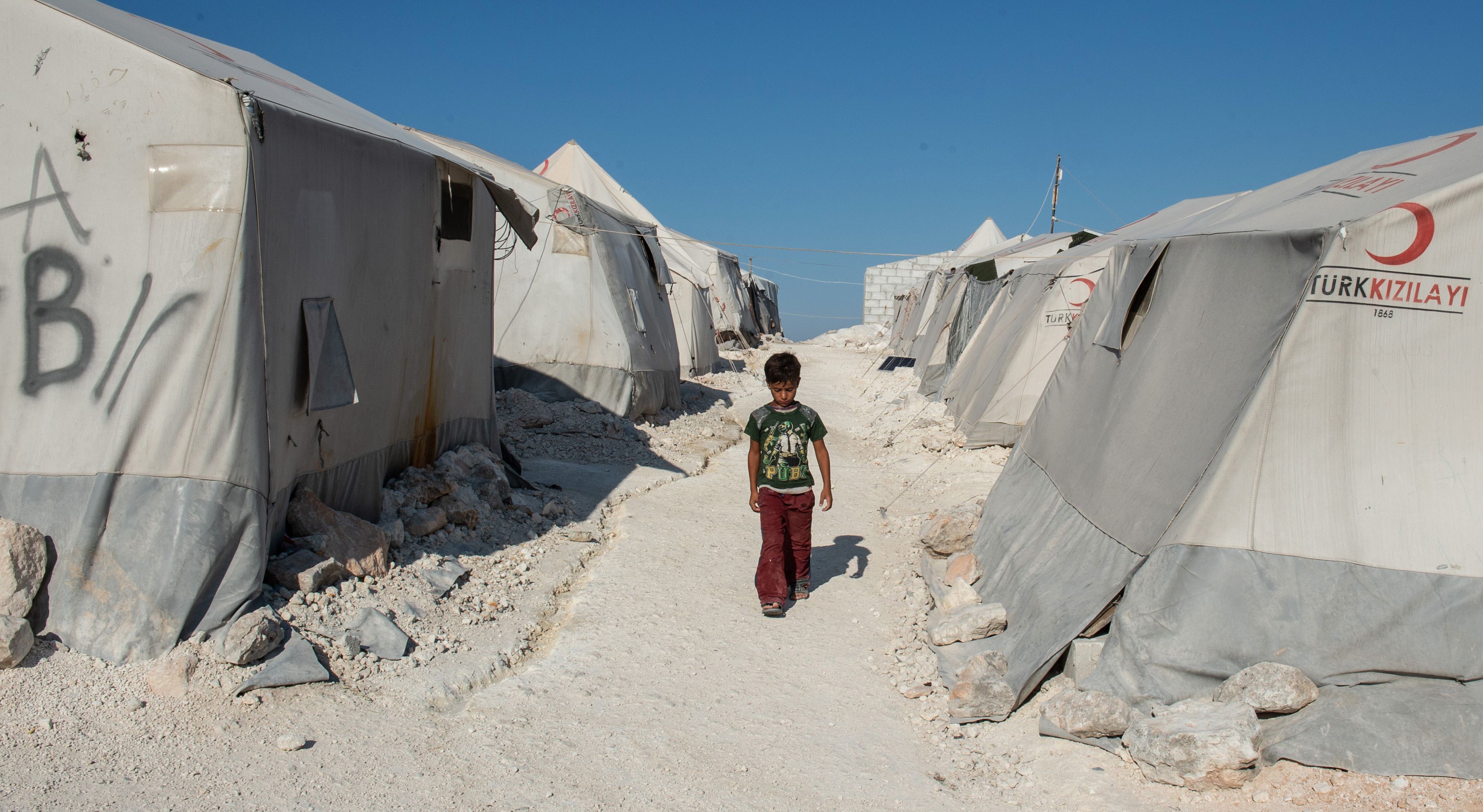
A displaced Syrian boy walks between the tents in a Turkish Red Crescent camp near the village of Atmeh, which hosts nearly 1 million displaced Syrians along the Turkish-Syrian border, 17 September 2019, Idlib Governorate, Syria. (Photo: Burak Kara / Getty Images)
South African authorities wary about security risk
A senior government source who wished to stay anonymous told DM168 that there is ongoing conflict behind the scenes between South African authorities arguing that the repatriation of the women and children is essential on humanitarian grounds, and concerns from the local intelligence services about the potential security risk their return may pose.
International experts have stressed, however, that a far greater risk may result from allowing the foreigners to remain in the Syrian camps indefinitely.
Save the Children’s 2021 report states: “Unaddressed trauma, growing frustration and a sense of uncertainty about the future with no possibility to return to their countries of origin could provide a pull towards Isis or other armed groups. While children are in the camps – with the presence of Isis sympathisers – they remain at risk of falling under their influence, in the absence of any other options.”
Cornett says that the threat these women and children pose to national security has in any case been “vastly overstated for political gain” in other countries.
“It would be straightforward for the South African government to bring them home. Where there are cases to answer, the South African justice system is more than capable of prosecuting them.” DM168
This story first appeared in our weekly Daily Maverick 168 newspaper, which is available countrywide for R25.

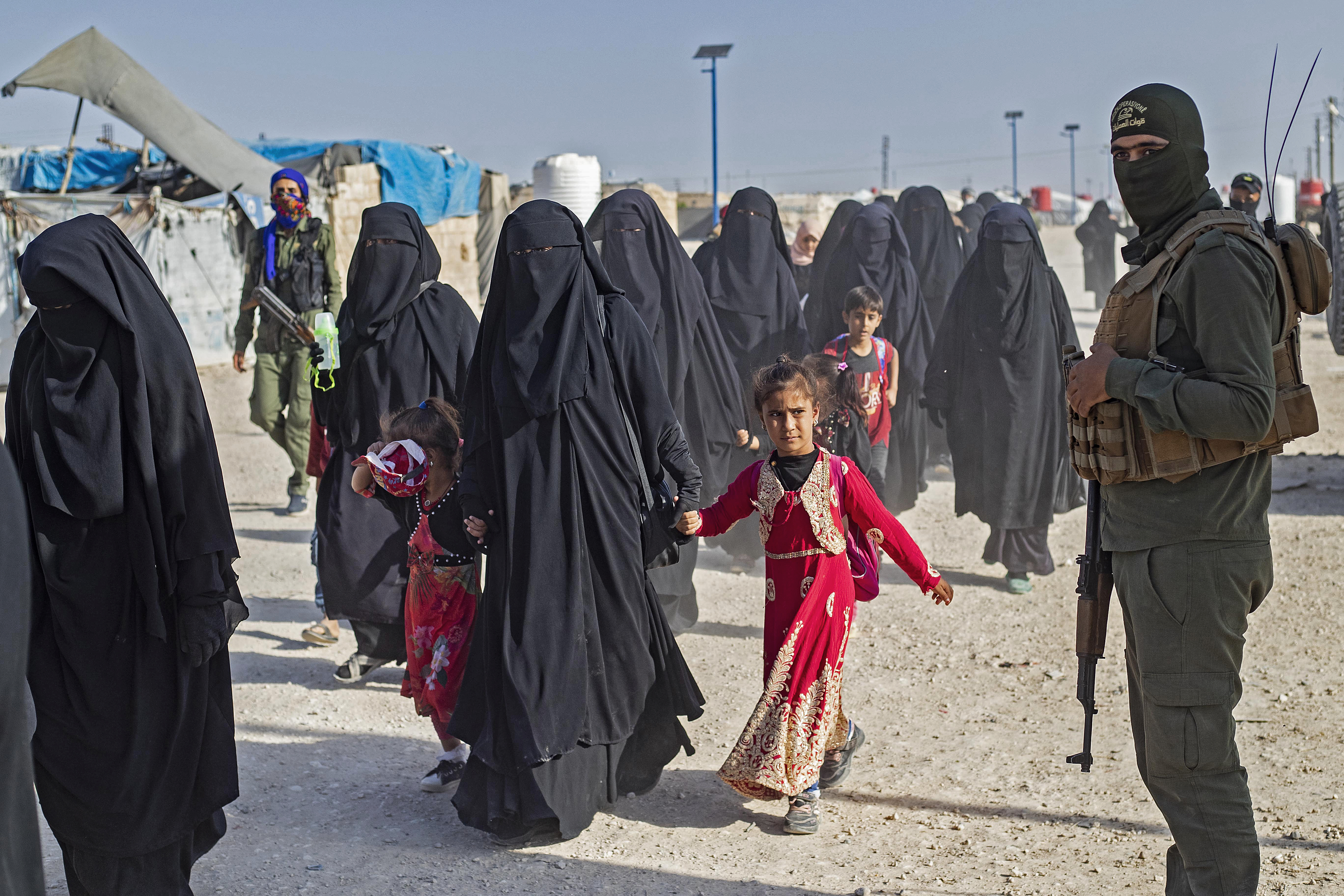
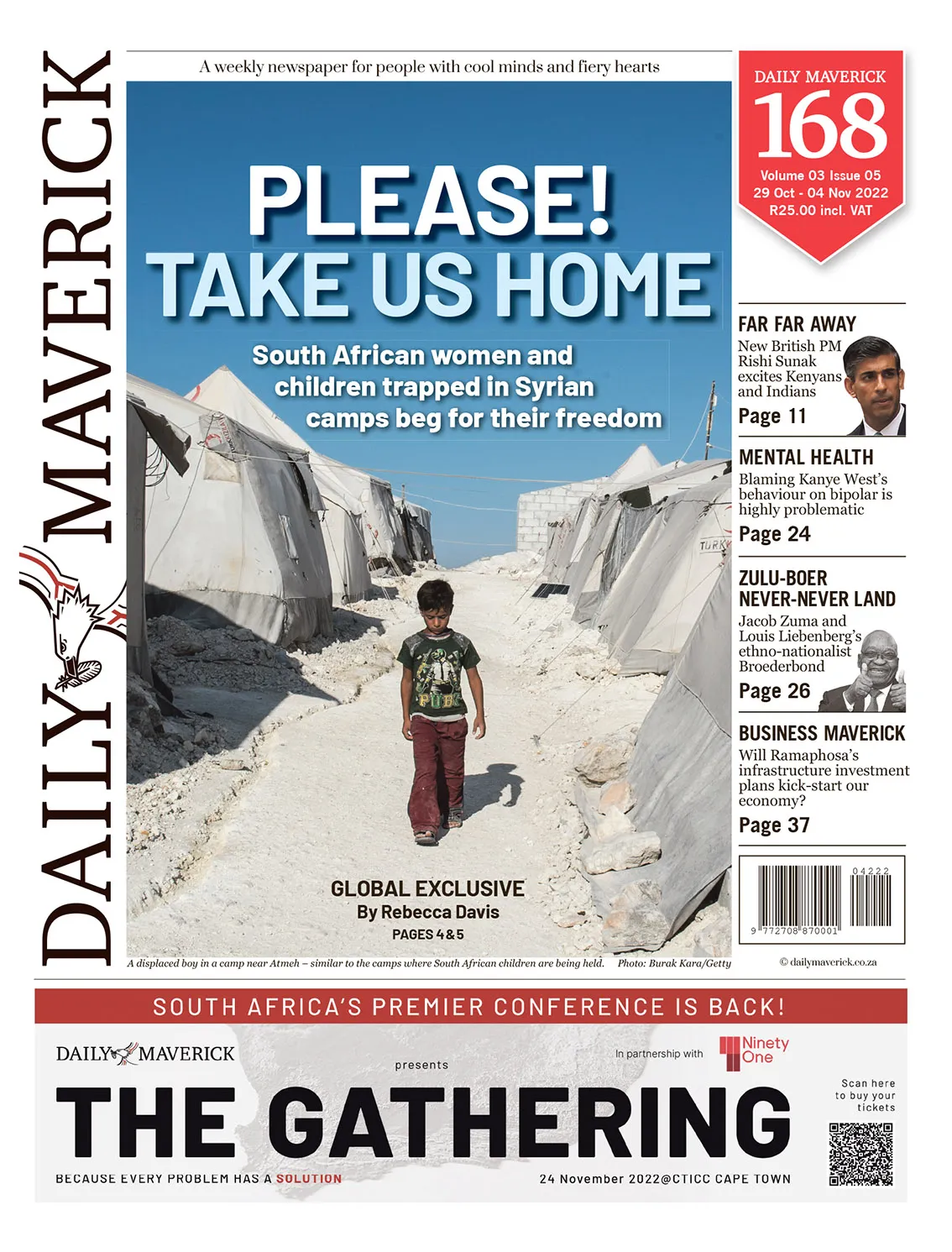
















 Become an Insider
Become an Insider
And they are there, why exactly?
Life is choice. Choose peace and tolerance.
To answer your question: Among the reasons why they are there the following: “Isis trafficked women and children into its territory to fulfil its strategic goal of state-building, and subjected them to sexual exploitation and other abuses,” Cornett told”